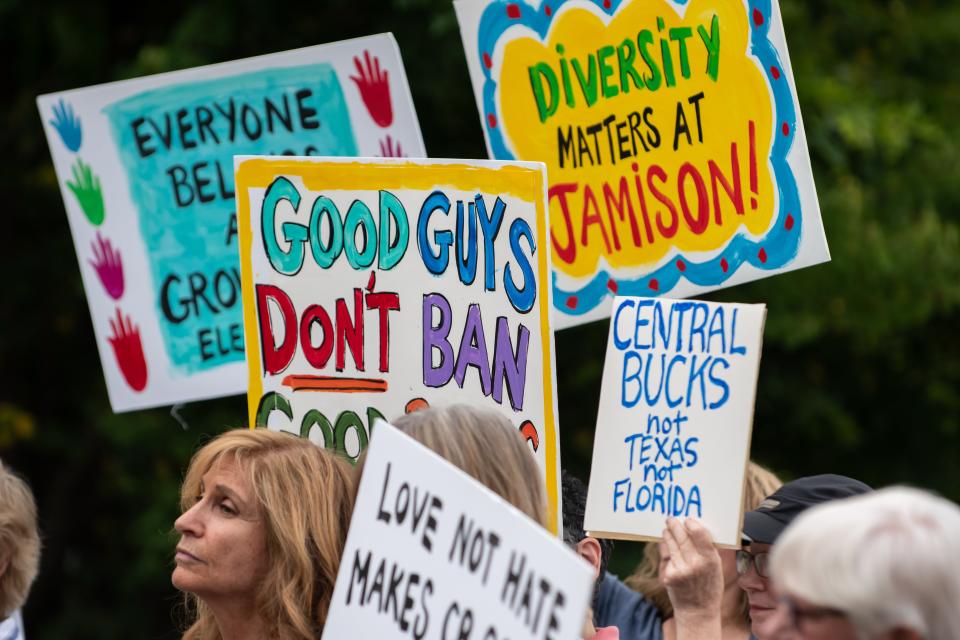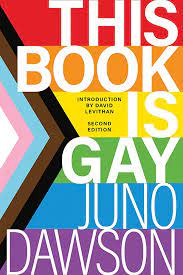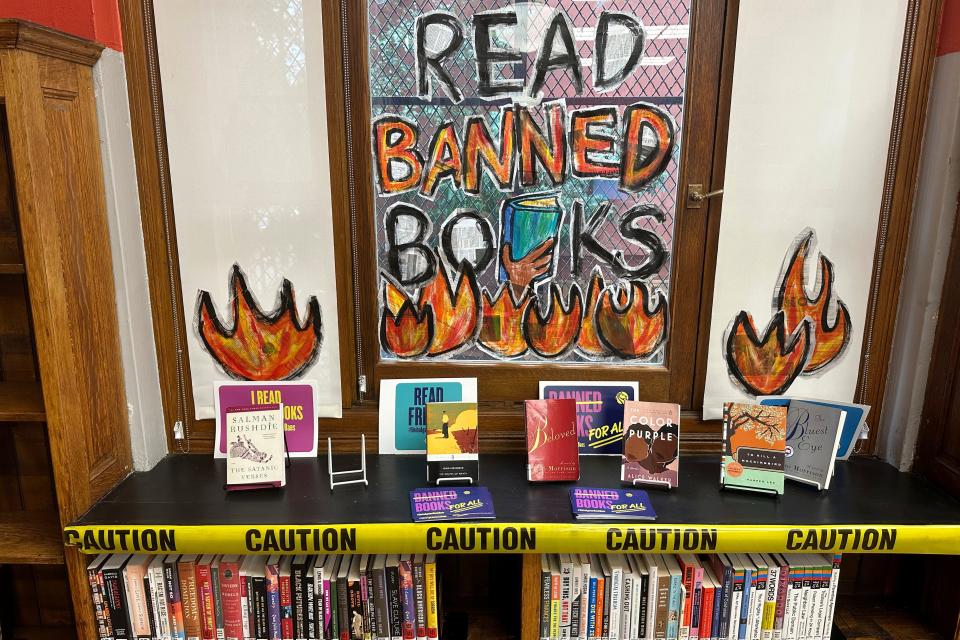Dozens of Pa. school districts have changed book policies since 2019, analysis shows
School libraries over the past several years have been the bull's-eye for parents’ rights groups targeting what they call sexually explicit material allegedly available to minors — a claim that free speech advocates warned was a cover to ban books about racism and LGBTQ people.
While the culture war waged in states like Texas and Florida, the Central Bucks School District in southeastern Pennsylvania became a battleground, making national headlines when its Republican-majority board passed a restrictive library policy in 2022.
The policy allowed any resident in the school district to challenge a book and made "explicit or implied" depictions of nudity or sex a bannable offense.
Groups like the Education Law Center and the ACLU of Pennsylvania warned that the policy would run afoul of decades of legal precedent requiring the entire context of a book be considered when challenged.
But with the support of local chapters of far-right groups like Moms For Liberty and the religious liberty law firm Independence Law Center, Central Bucks’ Policy 109.2 served as the basis for boilerplate policy language in several districts across the state over the past year.
Though the turmoil in Central Bucks has been particularly pronounced, many other Keystone State communities have turned attention to media policies in the past few years.
More: How the USA TODAY Network analyzed library policies in more than 400 Pa. school districts
More: Woke PA's book ban push comes to Central Bucks board meeting
Roughly a fifth of Pennsylvania school districts — at least 90 of them — have adopted or revised their policies on library books and other instructional materials since 2019, the beginning of the political firestorm around classroom literature, according to an analysis by the USA TODAY Network. As in Central Bucks, some of these changes stirred community concern about the potential for censorship.
The analysis also found that more than 400 Pennsylvania school districts have policies devoted to resource materials, including books, software and other instructional tools, or specifically related to maintaining a library.
Many of these school districts codified their policies years ago, well before the recent uproar over library books, setting forth criteria for choosing media and literature and empowering parents to petition for removal of works they think are inappropriate or harmful.
However, conservative activists in Pennsylvania and around the nation have argued these longstanding practices don’t go far enough — and that schools are trampling the rights of parents by indoctrinating children in left-wing ideologies.
That alleged “indoctrination” usually comes in the form of “age-inappropriate books” that parents are either unaware are available or have little to no control over, according to supporters of more restrictive policies.
About a dozen parents in Central Bucks spoke at a meeting in March 2022 to show early support for the proposed policy to ban "pornographic" material by reading excerpts of books like Toni Morrison’s "The Bluest Eye," often regarded as an American classic novel.
“What we are fighting against is blind trust. We are the gatekeepers for our children, not agencies. And we are fighting to remain consistent with our already established laws that have involved minors and sexually explicit and obscene content, and removal of these books only,” Buckingham resident Tanya Kovacs said.
However, at least 217 school districts in Pennsylvania have library policies stating that “a list of resource materials" must be "provided by the district" to any official, employee or parent, the USA TODAY Network found. Only about 10% of those policies were adopted in the past three years.

At least 121 school districts have policies or administrative regulations that refer to a “reconsideration” or “re-evaluation” process.
So amid this heated climate around parental rights and censorship, here’s some advice from librarians about how community members can identify whether their local school policies protect intellectual freedom or could potentially threaten it.
What types of policy provisions are green flags to Pennsylvania school librarians?
It’s a positive sign if a district policy puts a certified school librarian in charge of selecting materials, says Sarah DeMaria, president-elect of the Pennsylvania School Librarians Association.
That’s because librarians are educated specifically to curate a collection and follow codes of ethics meant to prevent personal bias from skewing the selection of books or other materials, she said.
They’ve also developed a depth of knowledge about the collection in a particular school — and they’re dedicated to making sure students can see themselves in the literature while also exploring other perspectives. Administrators, community members or school boards don’t have that kind of intimate understanding of a particular library, DeMaria said.
“They're not sitting in the library interacting with their patrons and knowing their students and their backgrounds and their cultures and their religious views and even their political views,” she said. “They're just not immersed in that kind of experience that would give them the wherewithal to select materials for the library and also know when those materials need to go.”
Unfortunately, DeMaria said, school librarians aren’t always around to help.
Her association believes about 52 Pennsylvania school districts are without a professional librarian, something they consider a “dangerous problem.” The group is conducting a study to collect more information about school library staffing across the commonwealth.
What types of policy provisions are red flags to school librarians?
A selection process that involves a lot of red tape can indirectly cause censorship by making it more cumbersome to add materials to a collection, DeMaria said.
For instance, she’s heard about rules that require a principal and several other people to sign off on the purchase of a book. But these education officials might not feel they have the background knowledge to make that decision in a timely way, causing delays in the acquisition or even stopping it completely.
DeMaria said it’s also concerning when a district empowers anyone in the community to lodge a challenge seeking to take a particular book off the shelf — one of the controversial provisions adopted in the Central Bucks School District. School librarians are open to reconsidering materials, but these requests should come from students, staff members or parents and guardians, she contends.
“Certainly, we should avoid including the entire community, because they're not really a stakeholder in that game,” she said.
In Central Bucks, pressure from conservative activists and the new policy restrictions on sexual content precipitated bans on two LGBTQ-themed books, and another 60 titles were challenged early in 2023. A blue wave in November's election shifted control of the nine-member board to five Democrats who suspended the policy shortly after swearing-in Dec. 4.

In the final reports of the review committees for Maia Kobabe’s “Gender Queer” and Juno Dawson’s “This Book Is Gay,” the school employees making up the committees said the policy required them to remove titles that were “valuable and potentially vital information for those who need it.”
For DeMaria, yet another red flag goes up when a school policy is overly prescriptive about the types of books a library should contain.
Restrictions on specific sexual content or themes can become a source of anxiety for librarians, since they’re not able to read each book in full and are relying on professional journal summaries to decide if a particular work is appropriate for their collections, she said.
“So it can feel like there's an extra liability on ordering books,” she said. “I think that that could open the door for even some soft censorship, that librarians are taking a step back and being really conservative about what they're ordering.”
What does the American Library Association recommend?
The American Library Association argues that every library should have a comprehensive policy detailing material selection and disposal and laying out a process for challenging books or other media.
Deborah Caldwell-Stone, who directs the ALA’s Office for Intellectual Freedom, said her organization also strongly advises districts to separate library and curriculum policies, since checking out a book from a collection is voluntary rather than a class requirement.
More: Central Bucks approves library policy some view as book ban
“These are materials that go beyond the classroom, that may include controversial topics that are of interest to students for any number of reasons,” she said.
Among other things, the association recommends that a policy should
affirm the principles of intellectual freedom;
ensure that the final responsibility for material selection rests with a professional librarian;
lay out general selection criteria, such as that a library should present a wide range of views on controversial issues and promote diversity;
charge a school librarian with accepting input from teachers, students and administrators on what books should enter a collection;
clarify that districts will hold donated books to the same standard as purchased ones; and
outline a reconsideration process, during which the challenged book in question should remain on the shelves and available to patrons.
Like DeMaria, Caldwell-Stone says policies should give librarians broad latitude to exercise professional judgment in maintaining and expanding a collection.
Conversely, policies should “not be written in a way that targets particular topics, particular identities and marks them off as problematic,” she explained.
She also asserts that parents should have the right to opt their children out of class readings on moral grounds or restrict access to library materials they find objectionable. They just shouldn’t have the power to make these unilateral decisions for an entire student body, Caldwell-Stone said.
What do conservative activists believe are the problems with existing school library policies?
In short, they contend that rules are too weak to prevent pornographic material from ending up inside schools.
Members of Moms for Liberty and other activists in the past few years have unleashed a flood of challenges to books they claim are obscene, including acclaimed novels such as “The Kite Runner,” “The Handmaid’s Tale” and “The Bluest Eye.”
But they’ve been frustrated when education officials dismiss their challenges, with some district-level review processes concluding that the books in question have sufficient educational or literary merit to stay in circulation.
Those findings and the presence of these books on the shelves in the first place are evidence of a broken system, activists contend.

“Pornographic materials on the taxpayers’ dime is inexcusable,” a conservative board member in northwestern Pennsylvania’s Penncrest School District said in a statement after objecting to certain titles stocked in his local school libraries.
(There was no evidence at the time that any of the materials in question met the legal definition of pornography.)
Penncrest ended up adding a section to its library policy prohibiting any material with explicitly written, visual or visually implied depictions of sexual acts, as well as depictions of nudity with the exception of anatomical diagrams and classical artwork.
And at least one district has ordered a full-scale review of its 46,000-book library collection to categorize them based on a new rating system, DeMaria noted. Elizabethtown Area School District in Lancaster County will also give parents a form allowing them to opt their children out of books that fall into certain categories, according to LNP.
But DeMaria, who noted that school library books already come with vendor age recommendations, said she’s concerned that handing librarians massive tasks like this could leave them with little time for other aspects of their job, such as working with students and teaching research classes.
Bethany Rodgers can be contacted via email at brodgers@gannett.com. Chris Ullery can be contacted via email at cullery@couriertimes.com.
This article originally appeared on Beaver County Times: Does your Pa. school policy open the door to censorship?

